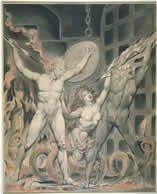
Download the lecture on Shelley, part one, here:
http://www.efn.org/~heroux/Shelley lecture.doc
And part two here:
http://www.efn.org/~heroux/Shelley lect 2.doc
It should open with Microsoft Word. If you have any technical trouble with these 2 files, then just send an email to me and I'll send you a different format version.
To get credit for attendance on "Study Day" 6/22, you are required to post your question or comment to this blog about Shelley, any time before the final exam. See you then.


1 comment:
A 2nd round of replies to some comments here:
Valeria:
What you wrote makes sense. I guess Wordsworth wouldn't like Shelley's poetry that much, and in fact Wordsworth didn't even like his friend Coleridge's poetry that much. But I haven't seen any text by Wordsworth about Shelley. This also answers one of Cindy's questions. Nevertheless, Shay is right to say that Shelley often sounds like the young Wordsworth.
I've said a few additional things about both "Mont Blanc" and about "Ode to the West Wind" in the 2-part lecture here. Probably Carol is right in her comment about the latter. So perhaps the disturbing "vacancy" of the earlier "Mont Blanc" now becomes a cycle of destruction-and-renewal in "West Wind".
Jenny asked about the meaning of the final couplet in that poem. The trumpet is the sound of the Wind, which is given a large meaning of prophecy not only about Nature's cycles from Fall to Winter to Spring, but also as the whole poem suggests, about the destiny of society. Shelley saw his time as in a political Fall, and called for inspiration and faith in an inevitable renewal. But the old regime would have to be cleared away by some kind of cultural "wind" first. Thus the final line: "
If Winter comes, can Spring be far behind?"
Is a rhetorical question. The answer is no, Spring cannot be far behind. It is coming soon, etc. "Spring" then would imply some sort of progress that Shelley believed in. He's talking himself out of despair and pessimism.
Or...? Any other interpretations?
Post a Comment